VIRTUAL EVENT: UCL Humanitarian Summit: The climate and Covid-19 humanitarian crises, and BSc launch
09 July 2020, 10:00 am–3:00 pm
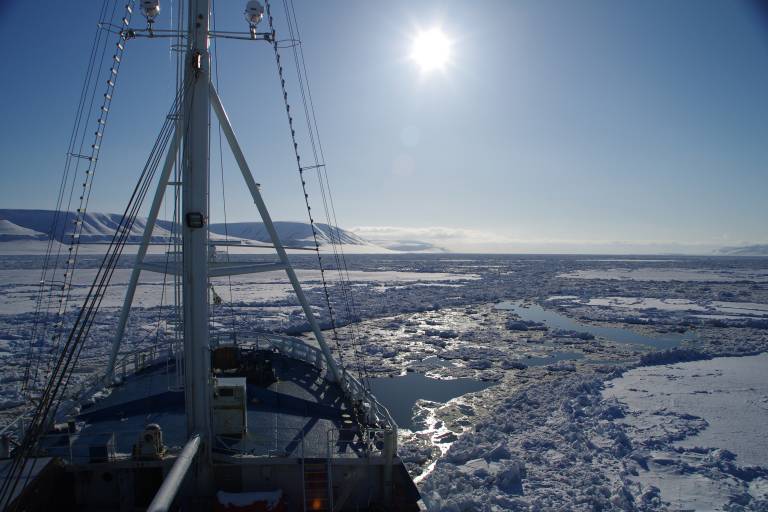
Climate change and the Covid-19 pandemic are also humanitarian crises. Join us in a one-day meeting to interrogate these crises from a humanitarian viewpoint. The Summit will launch our new BSc Global Humanitarian Studies and give students opportunities to find out more about this exciting new programme.
This event is free.
Event Information
Open to
- All
Availability
- Yes
Cost
- Free
Organiser
-
Sarah Jeal – UCL Institute for Risk and Disaster Reduction
Please note that due to the current lockdown restrictions, this is now an online event, taking place on Thursday 9th July.
The UN Climate Change Conference COP26 has been cancelled because of Covid-19. But the climate crisis has not been cancelled. Chaired by Professor David Alexander with contributors from across UCL and its partners, the Humanitarian Summit will interrogate how the global pandemic and climate change are intensifying humanitarian crises and impacting areas including energy poverty, health inequalities and migrants. The Summit will be delivered online through panel discussions and student-led debate. The Summit will launch UCL’s new BSc Global Humanitarian Studies. Unique in the UK, this multidisciplinary programme aims to educate and train future generations of humanitarian leaders in the theory and practice of humanitarian action. The programme will start in September 2021, with applications through UCAS open from 8 September 2020.
Programme
09:30 – 10:00 Conference digital platform login
10:00 – 10:10 Welcome speech by Prof Peter Sammonds, Director, UCL IRDR and Introducing BSc Global Humanitarian Studies
10:10 – 10:15 Conference Inauguration [convenor: Professor David Alexander]
10:15 – 11:15 Panel Discussion on Disaster and Health Diplomacy in Global Pandemics. Convened by Prof Ilan Kelman
11:15 – 11:45 Break with online networking available via Zoom
11:45 – 12:15 Launch of BSc in Global Humanitarian Studies [Chair: Dr Punam Yadav]
12:15 – 12:45: Q&A with IRDR staff and students
12:45 - 13:45 Lunch break with online networking available via Zoom
13:45 – 15:00 Climate Change and Humanitarian Crises. Plenary talk by Prof Michael Grubb and panel discussion.
15:00 - close
Confirmed speakers
Panel Discussion on Disaster and Health Diplomacy in Global Pandemics. Chair: Prof Ilan Kelman
- Randolph Kent, Visiting Professor, African Leadership Centre
- Randolph Kent is a Visiting Professor at the African Leadership Centre and a Senior Associate Fellow at the Royal United Services Institute. Before, he directed the Humanitarian Futures Programme at King's College London. He accepted his KCL post after completing his assignment as UN Resident and Humanitarian Coordinator for Somalia in April 2002. Prior to this, he served as United Nations Humanitarian Coordinator in Kosovo (1999), United Nations Humanitarian Coordinator in Rwanda (1994–1995), Chief of the United Nations Emergency Unit in Sudan (1989-1991) and Chief of Emergency Prevention and Preparedness in Ethiopia (1987–1989).

- Katie Peters, Overseas Development Institute (ODI)
- Katie Peters has been a Senior Research Fellow at the Overseas Development Institute (ODI) since 2011. Leading ODI’s portfolio on the intersection of natural hazard-related disasters, climate change and conflict, her research focuses on disaster risk reduction in fragile and conflict affected states, the relationship between climate change and conflict, and the securitisation of climate change. Throughout her time at ODI, Katie has been principal researcher for a multitude of policy-orientated research projects aiming to advance our collective understanding of the intersection of disasters, resilience, poverty, climate change, security, fragility and conflict.

- Geordan Shannon, Institute for Global Health, UCL
- Dr Geordan Shannon is a feminist, medical doctor and academic at the Institute for Global Health, University College London. Much of her career has been dedicated to thinking critically about gender, health systems, and transformative, trans-disciplinary and transnational approaches to global health, with a strong emphasis on systems thinking, human-centred design, and participatory research. She was awarded the United Kingdom’s Young Australian of the Year Award in recognition of her oversight of community-led interventions for non-communicable disease and violence prevention in Australia, Kenya, Peru, Sierra Leone and the Republic of South Africa. Her current research initiative Stema (www.stema.org) focuses on informal systems of community health and wellbeing, and enabling communities to mobilise and transform local resources to improve their health and wellbeing.
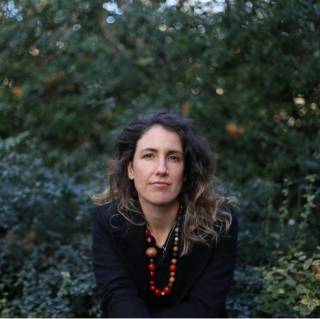
- Chair: Ilan Kelman, UCL Institute for Risk and Disaster Reduction
- Ilan Kelman is Professor of Disasters and Health jointly appointed between IRDR and Institute for Global Health. His main research interests link disaster and health topics through (i) diplomacy, namely disaster diplomacy and health diplomacy; (ii) climate change; and (iii) island and polar locations. Bringing his research into the classroom means coordinating modules on 'Conflict, Humanitarianism, and Disaster Risk Reduction' and 'Climate change and health'. HeI lectures on migration, sustainability, gender, and disability, connecting practice with theories of vulnerability, resilience, disasters, islandness, Arcticness, and climate change's role. His recent consultancies have been for the international and national agencies as well as the private and non-profit sectors, and his work has appeared throughout the media around the world.
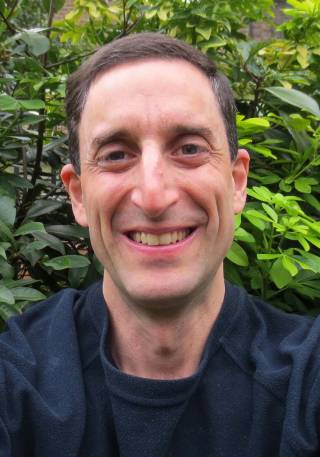
Launch of BSc in Global Humanitarian Studies. Chair: Dr Punam Yadav
- Jessica Field, UCL Institute for Risk and Disaster Reduction
- Jessica is Lecturer in Humanitarian Studies in the IRDR. She is an interdisciplinary scholar and her research focuses on past and present humanitarian crises in Asia. Recent publications have examined disaster management and refugee protection in India and the conflict-disaster nexus in the Philippines. She advises on humanitarian policy and is a member of UNHCR India’s Research and Advocacy in Action Group and an Advisory Group member for Save the Children India’s new Risk Vulnerability and Resilience Centre of Excellence in Delhi. She is co-investigator on a British Academy grant, "Rohingya Journeys of Violence and Resilience in Bangladesh and its Neighbours: Historical and Contemporary Perspectives".
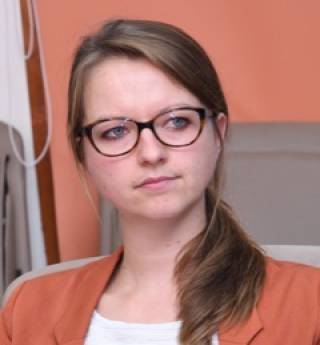
- Allen Abramson, Department of Anthropology, UCL
Allen is an Associate Professor in UCL’s Department of Anthropology. His research has aimed at elucidating the logical tendencies and dialectical properties of transforming cultural worlds. This basic allegiance has underpinned studies of myth, ritual and gender (especially in the Oceanic context) as well as a strong interest in relations connecting land, death and value. Currently, he is extending this concern to explore landscapes of risk and extreme transformations of culture.
- Professor Peter Sammonds, UCL Institute for Risk and Disaster Reduction
- Professor Peter Sammonds is Director of the UCL Institute for Risk and Disaster Reduction and Professor of Geophysics. He works at the interface of natural and social sciences. His research and knowledge exchange is on natural hazard risks, disasters and recovery. He has worked on earthquake mechanics, volcanoes and ice physics in the Arctic. He works on research council, British Academy and Royal Society-funded projects on Increasing Resilience to Environmental Hazards in Border Conflict Zones and Resilience Futures for the Rohingya Refugees. He has advised the UK research councils on the increasing resilience to natural hazards programme; been a member of EEFIT Earthquake Engineering Field Investigation teams, contributing to inter-disciplinary reports on disaster, taken up widely by government for policy advice; and been a Commissioner on the UCL–Lancet Commission on Migration and Health, 2017–18, whose report has been influential. He is currently the Gender and Intersectionality Ambassador for the UKRI network+ GRRIPP project led by the IRDR Centre for Gender and Disaster.
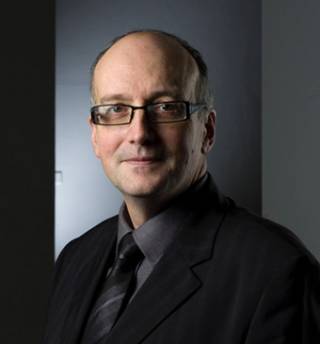
- Chair: Punam Yadav, UCL Institute for Risk and Disaster Reduction
- Dr Punam Yadav is Lecturer in Humanitarian Studies and Co-director of the IRDR Centre for Gender and Disaster. She is also the Co-Investigator for the UKRI Collective Fund award – GRRIPP Network Plus (2019–2023). Dr Yadav coordinates an MSc module, ‘IRDR0016 Gender, Disaster and Conflict’. She will also be coordinating a module on Humanitarian Research Methods for the new BSc programme. She joined the IRDR in April 2018. Prior to IRDR, Dr Yadav was a Research Fellow at the London School of Economics and Politics Science. Dr Yadav has also worked with various international and local Humanitarian Organisations.

Plenary talk and panel discussion: Climate Change and Humanitarian Crises
- Michael Grubb, Professor of Energy and Climate Change, UCL
Michael Grubb is Professor of Energy and Climate Change at University College London (Institute of Sustainable Resources & Energy Institute), and Research Director for ISR. From 2011-2016, alongside academic roles, he worked half-time at the UK Office of Gas and Electricity Markets (the energy regulator, Ofgem) as Senior Advisor, initially on Sustainable Energy Policy, and subsequently Improving Regulation; from Autumn 2016 he moved to Chair the UK government’s IPCC Sixth Assessment (Mitigation Report), and as Leader for the Sustainability hub of the UK Research Council's programme on Rebuilding Macroeconomics.
Michael has combined research and applied roles for many years, bringing research insights into policymaking, and bringing practical experience to bear upon academic studies. Before joining UCL, he was part-time Senior Research Associate in Economics at Cambridge University, combined with (prior to joining Ofgem) Chief Economist at the Carbon Trust, and Chair of the international research network/interface organisation Climate Strategies.
These conjoined appointments followed 10 years at Chatham House where he led the Energy and Environment programme. He founded the Climate Policy journal and remained Editor-in-Chief until 2016. From 2008-11 he served on the UK Climate Change Committee, established under the UK Climate Change Act to advise the government on future carbon budgets and to report to Parliament on their implementation.
Michael is also the author of eight books, sixty journal research articles, and numerous other publications. The book Planetary Economics: energy, climate change and the Three Domains of Sustainable Development (Routledge 2014), brought together insights from 25 years of research and implementation of energy and climate policies.
Beyond energy and climate change, he is on the Scientific Advisory Boards of the German Inst for Economic Research (DIW Berlin).- Saleemul Huq, International Centre for Climate Change and Development
- Professor Saleemul Huq is the Director of the International Centre for Climate Change and Development (ICCCAD) at Independent University, Bangladesh (IUB) since 2009 and Senior Fellow at the International Institute for Environment and Development (IIED) in London. He is also Senior Advisor on Locally Led Action, Global Centre on Adaptation (GCA) and Advisor of Climate Change Programme at BRAC. Before that Dr Huq was the Director of the Climate Change Programme at IIED and founding Executive Director at the Bangladesh Centre for Advanced Studies (BCAS). He has worked extensively in the inter-linkages between climate change (both mitigation as well as adaptation) and sustainable development, from the perspective of the developing countries, with special emphasis on least developed countries (LDCs). He has published numerous articles in scientific and popular journals, was a lead author of the chapter on Adaptation and Sustainable Development in the third assessment report of the Intergovernmental Panel on Climate Change (IPCC), and was one of the coordinating lead authors of ‘Inter-relationships between adaptation and mitigation’ in the IPCC’s Fourth Assessment Report (2007). He has been ranked among “World’s 100 most influential people in climate policy for 2019”.
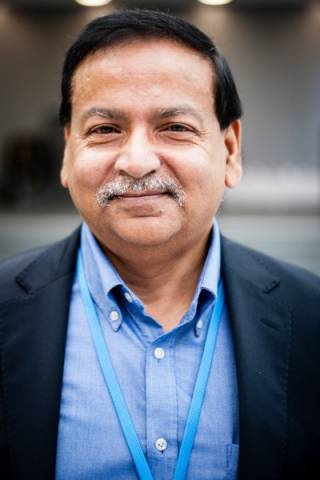
- Dina D’Ayala, Department of Civil, Environmental and Geomatic Engineering, UCL
Dina D’Ayala is the Professor of Structural Engineering at University College London, within the Department of Civil, Environmental and Geomatic Engineering. She is head of Civil Engineering and Co-Director of the Earthquake and People Interaction Centre, EPICentre. She is a director of the International Association of Earthquake Engineers and Fellow of the ICE. Her specialism is Structural Resilience Engineering with particular emphasis on the assessment, strengthening, preservation and resilience of existing buildings, structures, transport infrastructure and cultural heritage. Her current research focuses on resilience of structures and infrastructure to natural hazards, supported through research grants from EU FP7, INFRARISK, and the UK RC, PARNASSUS, STORMLAMP, SCOSSO, PRISMH. She has 25 years’ experience working with international agencies, the World Bank, ODA, UNDP, British Council, in countries such as Nepal, Jordan, Turkey, Iraq, Philippines etc., and leading interdisciplinary projects on enhancing resilience against natural hazards. She has produced Guidelines for DfID on assessment and strengthening of hospitals and reconstruction efforts in Nepal. She is the chief scientist for the World Bank on the Global Programme for Safe Schools (GPSS) and leads the development of the World Bank GLoSI project.
Research milestones include the development of a numerical procedure to determine the seismic vulnerability of masonry dwelling (FaMIVE) with application from Turkey to Nepal, to Iran and Italy, the design and development of two patented strengthening dissipative devices, to retrofit architectural heritage and limit damage from seismic shocks.
She teaches Structures, Earthquake Engineering, Conservation Engineering and Design to Civil Engineering and Architecture students at undergraduate and postgraduate level.
- Yasemin D Aktas, UCL Civil, Environmental and Geomatic Engineering Department
- Yasemin D Aktas is lecturer in applied materials and structures at UCL Civil, Environmental and Geomatic Engineering Department (CEGE). She is the deputy academic director of UK Centre for Moisture in Buildings (UKCMB), and a member of Asian Network on Climate Science and Technology Special Topic Group on Urban Climate, Meteorology and Air Quality. Her expertise mainly lies in climate-induced hazards in built environment, with specific emphasis on urban heating, wind-driven rain and flooding. Her current research focusses on building and urban sustainability, health and wellbeing of urban dwellers, thermal comfort and building energy use potential in tropical megacities, and energy efficiency of historic/vernacular buildings.
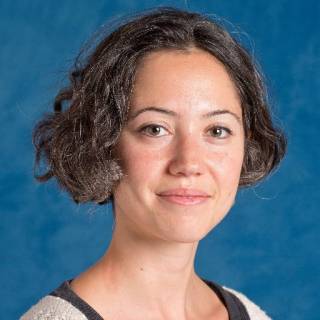
Conference Chair
- David Alexander, Professor of Risk and Disaster Reduction
- David Alexander is Professor of Risk and Disaster Reduction at University College London (UCL) and has conducted research on disasters since 1980. His main foci of interest are emergency management and planning, earthquake science, disaster epidemiology, and theoretical issues in disaster risk reduction. He has also studied cascading disasters and disability and disaster.
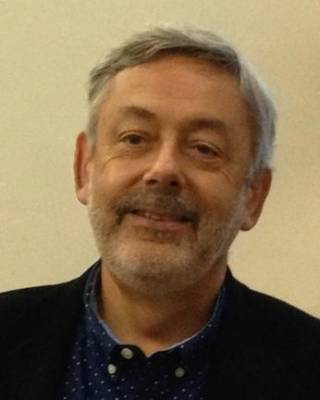
At UCL, David currently teaches emergency planning, disaster management, and research appraisal. Internationally, he teaches diverse aspects of the applied science of disaster risk reduction. David was trained as a geographer and geomorphologist. For many years he taught physical geography and landscape dynamics, and has been teaching natural hazards and disaster studies since 1981.
As well as being an accomplished author, David is the founder and Editor-in-Chief of Elsevier's International Journal of Disaster Risk Reduction, and was formerly Co-Editor of Disasters journal. He is a member of the editorial boards of 14 academic journals. He is Vice-President and Chairman of the Trustees of the Institute of Civil Protection and Emergency Management, which is the oldest learned society in the field of disaster reduction. In 2013 David won the Distinguished Research Award of the International Society for Integrated Disaster Risk Management (IDRiM).
How to access the event
Please book using the link above. Details on accessing the livestream and the Zoom networking events will be sent to registrants and available on the Eventbrite online event page.
View the livestream on YouTube: https://www.youtube.com/watch?v=KOS2YDXJfPY
UCL Humanitarian Institute
This event is organised by the UCL Humanitarian Institute, part of the UCL Institute for Risk and Disaster Reduction. The Humanitarian Institute aims to mobilise UCL's research, expertise and teaching to impact global humanitarian challenges and to promote education for global citizenship and the connected curriculum at UCL, through co-produced programmes spanning natural, social, engineering and medical sciences, the built environment, humanities, laws and ethics, creating a global university champion for the UK and aspiring to the vision of UCL 2034.
 Close
Close

